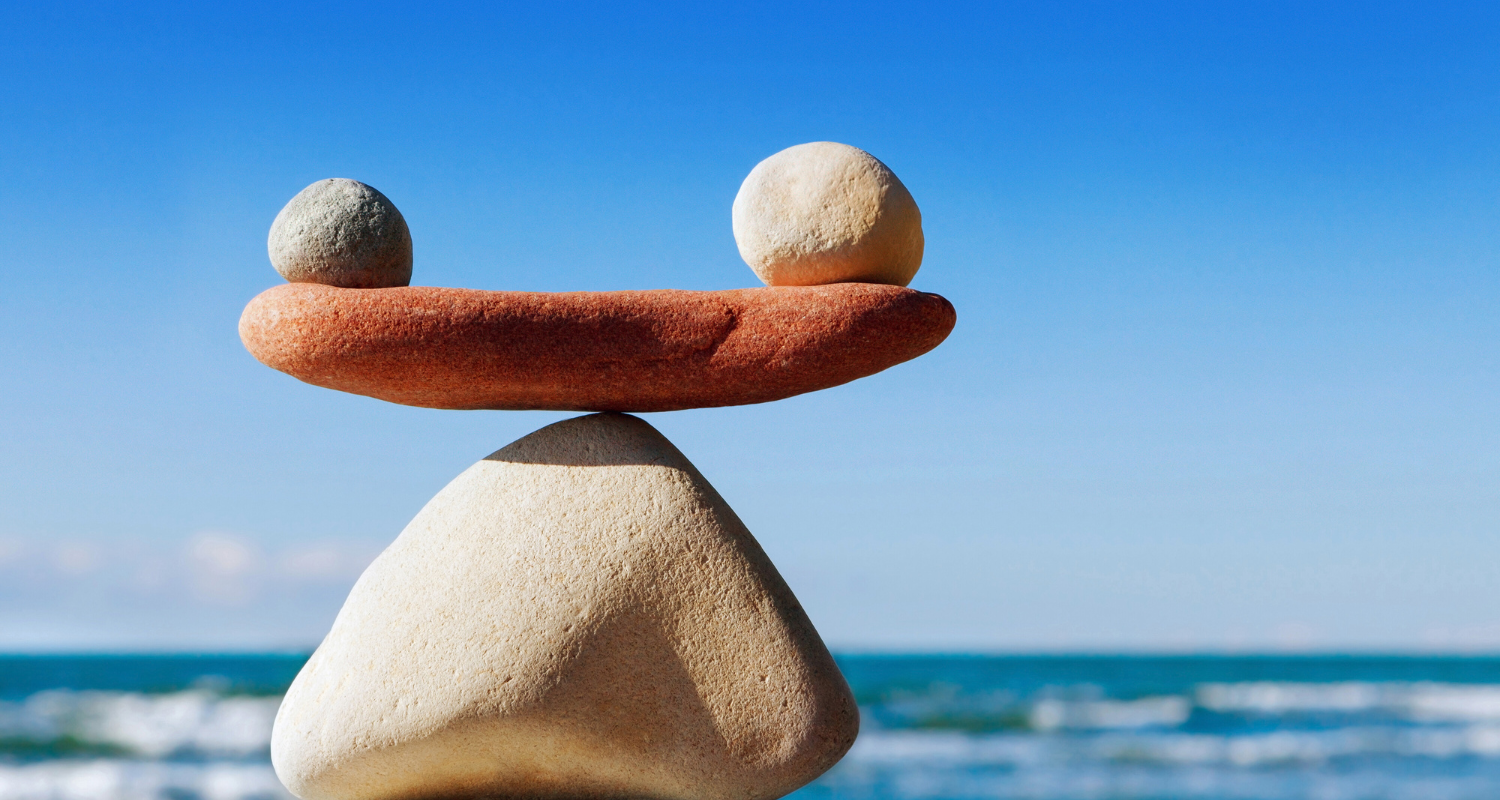Why Balancing Emotions Feels So Hard Right Now
Okay so like, you know when you're trying to juggle school, friends, maybe a part-time job, and everything just feels super overwhelming? That's basically what a lot of Canadian women deal with every single day, except multiply it by like a hundred. Between work deadlines, relationship stuff, family expectations, and just trying to keep it together, emotions can get really messy really fast.
The thing is, nobody really teaches us how to handle all these feelings while still getting stuff done. It's not like there's a class in school that says "okay, here's how to not lose your mind when everything hits at once." But here's what I've learned from talking to people who actually know about this stuff - there are some pretty straightforward ways to make things easier. And no, you don't need to become some meditation expert or completely change your life overnight.
What makes this especially tricky for women in Canada is the whole cultural thing about being "nice" and "accommodating" all the time. Like, you're supposed to handle everything with a smile, never complain, and just keep pushing through. But that's honestly not realistic or healthy. The good news is that more people are starting to talk about emotional wellness, and there are actual practical things you can do that don't require tons of time or money.
This post is gonna break down some real tips that actually work - not the complicated stuff you see in those fancy self-help books, but simple things you can start doing today. Whether you're dealing with a stressful job in Toronto, managing family expectations in Vancouver, or just trying to get through a tough winter in Winnipeg, these strategies can help.
Understanding Your Emotional Patterns
First thing you gotta do is actually pay attention to what triggers your emotions. I know that sounds super basic, but most people don't actually do this. Like, maybe you get really anxious every Sunday night before the work week starts, or maybe you feel overwhelmed when you get too many text messages at once. Everyone's different, and that's totally okay.
Try keeping a simple note on your phone for like a week. Not a fancy journal or anything - just quick notes about when you felt stressed, sad, angry, or overwhelmed. You might notice patterns you never saw before. Maybe it's always after talking to a certain person, or maybe it's when you skip lunch because you're too busy. These patterns are actually super important because once you see them, you can start dealing with them before they become huge problems.
One thing that really helps is giving yourself permission to feel whatever you're feeling without immediately trying to fix it or push it away. Canadian culture sometimes makes us feel like we need to be tough and just power through everything, but honestly? That usually makes things worse in the long run. If you're frustrated, it's okay to be frustrated. If you're sad, it's okay to be sad. The emotion itself isn't the problem - it's what you do with it that matters.
The Physical Signs You're Ignoring
Your body actually tells you a lot about your emotional state, but most people totally ignore these signals. Like, do you clench your jaw when you're stressed? Do your shoulders get super tight? Does your stomach feel weird when you're anxious? These physical sensations are your body's way of saying "hey, something's up here" - but we usually just push through and ignore them until we're completely exhausted.
Start checking in with your body a few times during the day. Just take like thirty seconds to notice if you're holding tension anywhere. Are you breathing normally or is it all shallow? Is your back hurting because you've been hunched over your computer for hours? These little check-ins can help you catch stress before it turns into a full breakdown. Plus, it's way easier to deal with tension when it's still small instead of waiting until you have a massive headache or can't sleep at night.
Simple Daily Practices That Actually Work
Okay so here's where we get into the actual practical stuff. You don't need to wake up at five in the morning or do yoga for an hour every day - honestly, if you're already overwhelmed, adding more stuff to your schedule is just gonna make things worse. These are small things that fit into a normal, busy life.
First up: the five-minute morning thing. Before you check your phone or start thinking about everything you need to do, just sit for five minutes. You can drink your coffee, look out the window, whatever. The point is to have a few minutes where you're not immediately reacting to other people's demands or diving into stress mode. It sounds too simple to work, but it actually makes a huge difference in how your whole day goes. You're basically giving your brain a chance to wake up without immediately flooding it with problems and notifications.
Another thing that helps is the "emotion check" throughout the day. Set like three reminders on your phone - maybe at eleven in the morning, three in the afternoon, and eight at night. When the reminder goes off, just take a second to notice how you're feeling. You don't have to do anything about it necessarily, just notice. Are you stressed? Tired? Happy? Annoyed? This helps you stay connected to your emotional state instead of just running on autopilot until you crash.
The Power of Saying No
This is probably gonna be the hardest one for a lot of people, but learning to say no is honestly one of the most important skills for emotional balance. Canadian women especially tend to overcommit because we don't want to disappoint anyone or seem difficult. But here's the reality - you can't pour from an empty cup, and saying yes to everything means you're constantly drained and resentful.
Start small with this. Maybe you say no to one extra thing this week - a social event you don't really want to go to, an extra project at work when you're already swamped, helping someone move when you really need a rest day. You don't have to be mean about it. Just a simple "I can't this time" or "That doesn't work for me right now" is totally fine. Most people will respect it way more than you think, and the ones who don't probably weren't respecting your time anyway.
What's interesting is that when you start saying no to things that drain you, you actually have more energy for the things that matter. It's not about becoming selfish - it's about being realistic about your limits so you can show up properly for the stuff that's actually important to you.
Managing Relationships Without Losing Yourself
Relationships are probably one of the biggest sources of emotional stress, whether it's romantic relationships, family stuff, friendships, or work relationships. The tricky part is balancing caring about other people with taking care of yourself. A lot of women end up being the emotional support person for everyone around them, which is exhausting and honestly not sustainable.
One thing that helps is being clear about boundaries. This doesn't mean building walls or pushing people away - it just means being honest about what you can and can't handle. Like, if your friend always vents to you for hours but never asks how you're doing, it's okay to say "I only have twenty minutes to talk right now" or "I'm dealing with my own stuff today, can we catch up later?" Good relationships can handle these kinds of boundaries. The ones that can't probably weren't that healthy to begin with.
Also, stop trying to fix everyone's problems. I know it's tempting, especially when someone you care about is struggling, but you're not responsible for solving everyone else's issues. Sometimes people just need to vent, and that's fine - but you don't have to take on their emotional weight as if it's your own. You can be supportive without carrying their burden.
The Communication Thing Nobody Talks About
Here's something that took me forever to figure out - most relationship stress comes from not saying what you actually need. Like, you're upset because someone did something, but instead of telling them, you just keep it inside and expect them to somehow figure it out. Spoiler alert: they usually don't figure it out, and you just get more frustrated.
Practice being direct about what you need. Not aggressive, not passive-aggressive, just clear. Instead of hinting or hoping someone will read your mind, try something like "I need some quiet time tonight" or "When you interrupt me, it makes me feel like you're not listening." It feels awkward at first, especially if you're used to just keeping the peace, but it gets easier with practice. And honestly, most people appreciate knowing what you actually need instead of having to guess.
Work-Life Balance in the Canadian Context
Canadian work culture can be pretty intense, especially in cities like Toronto, Calgary, or Montreal where there's a lot of pressure to constantly be productive and available. Add in long commutes, expensive housing, and the general stress of trying to build a career, and it's no wonder so many women feel completely burned out.
The first step is accepting that perfect balance probably doesn't exist. Some weeks work is gonna be crazy, some weeks you'll have more personal time. The goal isn't to have everything perfectly balanced every single day - it's to make sure that over time, you're not constantly sacrificing your wellbeing for your job. Because here's the thing - your company will replace you if they need to, but you can't replace yourself.
Set some non-negotiable boundaries around work. Maybe it's not checking emails after eight at night, or taking your full lunch break instead of eating at your desk, or using your vacation days instead of letting them pile up. Whatever it is, pick a few boundaries that matter to you and actually stick to them. Yeah, sometimes there are genuine emergencies, but if everything is always an emergency, that's a problem with the workplace culture, not with you.
Dealing with Seasonal Stress
Let's be real - Canadian winters are brutal, and they definitely affect your mood and energy levels. The whole "seasonal affective disorder" thing is super common here, especially in places where it gets dark at like four thirty in the afternoon for months. This isn't just about being sad - it affects your motivation, your sleep, your ability to handle stress, everything.
If you notice your mood tanking every winter, that's not a personal failure - it's a legitimate response to lack of sunlight and being cooped up inside all the time. Some things that can help: getting outside during daylight hours even if it's cold, using a light therapy lamp in the morning, taking vitamin D supplements, and being extra gentle with yourself during those months. Don't try to maintain the same productivity and energy levels you have in summer - it's just not realistic.
Self-Care That Isn't Just Bubble Baths
Okay so everyone talks about self-care, but usually it's portrayed as like, taking a bubble bath or getting your nails done. And sure, those things are nice, but real self-care is also about the boring stuff that actually keeps you functional. Like making sure you eat actual meals instead of just snacking all day. Getting enough sleep. Going to the doctor when something's wrong. Paying your bills on time so you're not stressed about money.
The fancy self-care stuff is great when you have time and energy for it, but if you're struggling just to get through the day, focus on the basics first. Are you sleeping enough? Are you eating food that actually nourishes you? Are you moving your body at all, even just walking around the block? These foundational things have a way bigger impact on your emotional state than most people realize.
Also, self-care sometimes means doing things you don't really feel like doing because you know they'll help. Like, maybe you don't feel like going for a walk because you're tired, but you know you always feel better afterward. Or maybe you need to have an uncomfortable conversation with someone because avoiding it is causing you stress. Real self-care isn't always fun in the moment - sometimes it's about making choices that support your long-term wellbeing even when the short-term option seems easier.
Getting Professional Help When You Need It
There's still a lot of stigma around therapy and counseling, but honestly, talking to a professional can be super helpful when you're struggling to manage emotions on your own. In Canada, there are actually quite a few resources available, even if you don't have extended health benefits through work. Many provinces have mental health services covered under their health plans, and there are also sliding-scale therapists who charge based on what you can afford.
You don't have to wait until things are completely falling apart to get help. Actually, it's way easier to work through stuff when it's still manageable instead of waiting until you're in crisis mode. Think of it like going to the dentist - you don't wait until your tooth is completely rotting before you get it checked out. Same idea with mental health.
If traditional therapy feels too expensive or intimidating, there are other options too. Many workplaces offer Employee Assistance Programs that include free counseling sessions. There are also support groups, both in-person and online, where you can connect with other women dealing with similar stuff. Sometimes just knowing you're not alone in struggling makes a huge difference.
Moving Forward Without Perfectionism
Here's the thing about all these tips - you're not gonna do them perfectly, and that's completely fine. The goal isn't to become some zen master who never gets stressed or emotional. The goal is to have some tools you can use when things get overwhelming, and to gradually build habits that support your emotional wellbeing instead of draining it.
Some days you're gonna handle everything great. Other days you're gonna lose it over something small and eat ice cream for dinner while binge-watching Netflix. Both of those are okay. Progress isn't linear, and being kind to yourself when you mess up is actually way more important than doing everything "right" all the time.
Start with one or two things from this list that seem doable for you right now. Maybe it's the five-minute morning routine, or practicing saying no to one thing this week, or just checking in with your emotions a couple times a day. You don't have to overhaul your entire life overnight. Small, consistent changes add up way more than trying to do everything at once and then burning out.
Remember that balancing emotions and daily life isn't about achieving some perfect state where you never feel stressed or overwhelmed. It's about developing skills and awareness so that when difficult emotions come up - and they will - you have ways to work through them without completely falling apart. You're doing better than you think, and taking the time to read this and think about your emotional wellbeing is already a step in the right direction.




